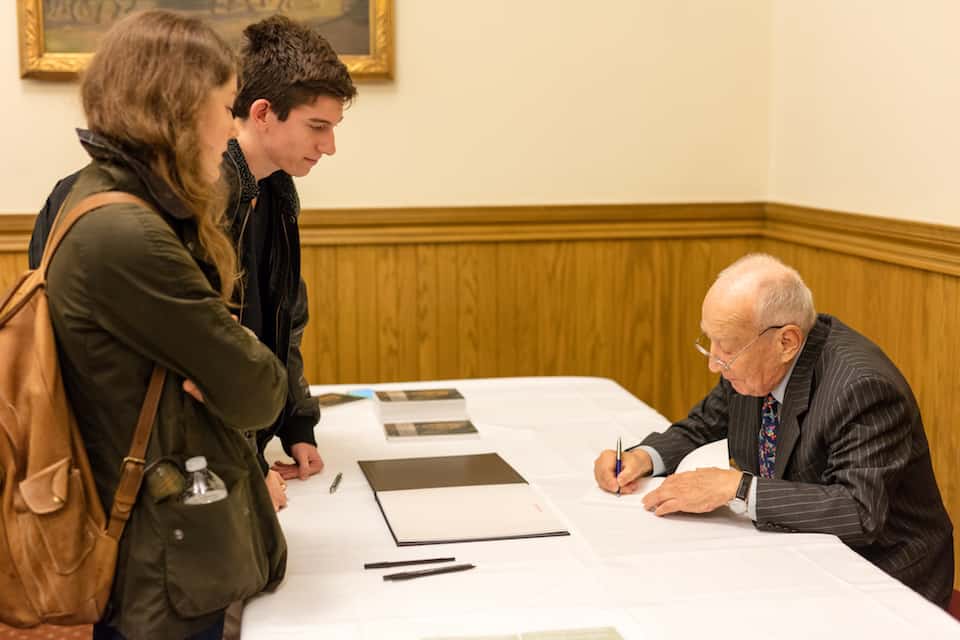Content warning: explicit discussion of acts of anti-Semitism and the Holocaust
Leslie Schwartz travels the world educating youth about his personal experiences as a Holocaust survivor. This past week, Schwartz’s travels brought him to U of T’s Victoria College to raise awareness about society’s need for compassion. The event, which took place on October 26, was organized by Victoria College student Nicole Fogel. It featured the screening of two Holocaust documentaries and a question and answer session with Schwartz.
Fogel was inspired to host the event after taking a class about the tragedy. “Leslie’s message conveys the importance of appreciating diversity in individuals,” said Fogel, emphasizing the need to promote tolerance. She explained, “We need students, as future leaders, to support ideas and initiatives that encourage acceptance of every individual.”
The first film, Mulhdorf Train of Death, details the attempted slaughter of thousands of Jews by the SS during the closing days of the Second World War. The second, Horrible Things: The Children of Nazi Concentration Camps, details the horrific conditions that children in concentration camps endured. The former was produced by German university students after they had learned that one of the train routes, which they used to commute to school, was used by the Nazis to send Jews to their deaths during the war.
Schwartz, who was among the Jews transported by the Nazis through Germany, recounted how SS guards reluctantly freed his fellow prisoners out of fear of retribution by the Allies, who were fast approaching. Schwartz was one of the few who managed to survive the massacre by taking refuge in a nearby town. Many of his closest friends did not survive. Schwartz recalled a fellow prisoner, who “was Orthodox to the point of keeping Kosher in the concentration camp,” was shot in the stomach by the SS and later died near Schwartz’ side.
In spite of the unimaginable horrors that Schwartz endured, he claims that he does not harbor any hatred towards the Germans, either on a personal level or as a nation. He attributes this in part to the random acts of kindness from German civilians who sheltered Jewish inmates who fled the SS.
Schwartz remembered one woman in particular, who hid him and a couple of other inmates in her barn and provided them with “the best bread and butter I have ever tasted in my entire life.” Schwartz went on to tell the audience, “Small acts of love have great power.”
When asked what lessons the world can learn from the Holocaust, Schwartz said that education and political participation are key to ensuring that people’s rights are upheld. Quoting Martin Luther King, Schwartz reminded the audience, “we are not makers of history, we are made by history.”


